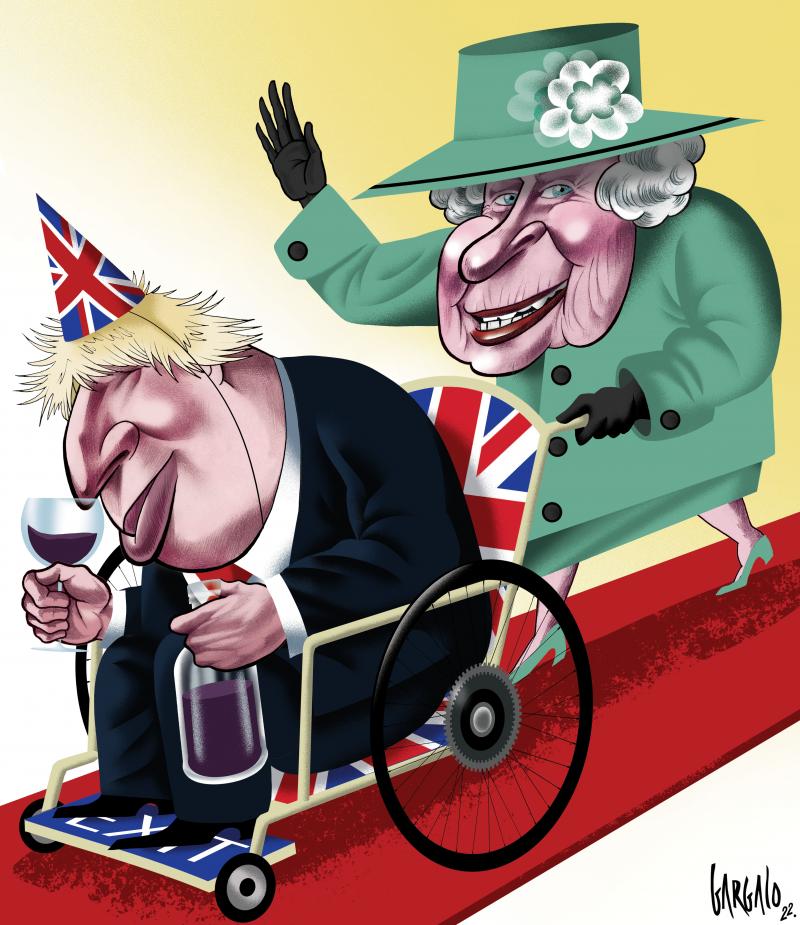On 6 June, as the UK recovered from a colourful weekend marking Queen Elizabeth II’s Platinum Jubilee, British Prime Minister Boris Johnson managed to survive a no-confidence vote organised by his own Conservative majority, plagued in recent months by the "partygate" scandal.
211 Tory MPs (59 percent) voted to retain the Prime Minister, while 148 (41 percent) voted for his dismissal. Johnson, for his part, declared himself satisfied with this "extremely good, positive, conclusive, decisive result". In fact, he emerges from the vote significantly weakened, mired in a divided party, sinking public approval and the war in Ukraine, and facing increased electoral competition - not to mention the fact that the parliamentary enquiry into partygate has not even begun.
Having stubbornly refused to resign ever since the first revelations of parties held in 10 Downing Street during lockdown, Boris Johnson still looks set to hold on to his job - but for how much longer? In December 2018, his predecessor Theresa May defeated a no-confidence vote with 63 percent of the vote, before being pushed out six months later. Will Johnson manage to do better?
Was this article useful? If so we are delighted!
It is freely available because we believe that the right to free and independent information is essential for democracy. But this right is not guaranteed forever, and independence comes at a cost. We need your support in order to continue publishing independent, multilingual news for all Europeans.
Discover our subscription offers and their exclusive benefits and become a member of our community now!












